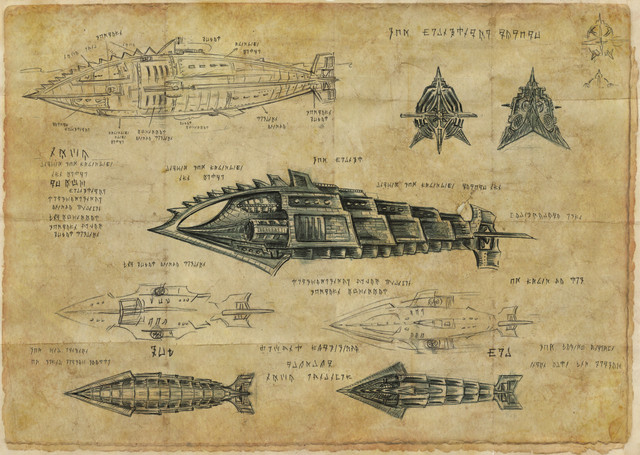HOME | DD
 Goliath-Maps — More Successful Revolution
Goliath-Maps — More Successful Revolution

Published: 2014-03-21 14:05:36 +0000 UTC; Views: 6067; Favourites: 26; Downloads: 20
Redirect to original
Description
Napoleon, shortly after taking power, is shot by counter-revolutionaries, and a few other individuals are able to make peace with the rest of Europe without giving too much away, and are able to solidify a long lasting (if shaky and sometimes autocratic) democracy in France. France is later able to smash through the dying Holy Roman Empire (still alive up to the 1850s), and a new wave of revolutions spread through Europe afterwards.Anxious to prevent revolutionary fervor from spreading to Spanish America, the Kings of Europe send off some of their relatives to become kings of new kingdoms sprouting there (in some places, a local made himself king). A wave of revolutions later spreads there.
Today, there are three main blocs. The most powerful, by far, are the Radicalist Republicans, who now dominated Europe. They're democratic, if a bit more leftist than those nations are OTL. Religious groups are more prone to claim that they're being officially discriminated against by the secular elite. Picking up revolutionary fervor, are abused nations in Asia and Africa. These are less nice places to live than the welfare states of Europe. Brazil overthrew its Emperor in the last decade, and has brought in a new Radicalist Dictator, whose cultural revolution echoes that of Mao. France was able to keep part of Louisiana longer, and regain Quebec, and so those territories are now some of the nicer Radicalist republics.
The Conservative Republicans, lead by a weaker, more inward looking, commerce minded U.S., are slightly more conservative than OTL, and also still Democratic. The U.S.' first major intervention in a foreign nation occurred this past decade, and many in the U.S. still oppose it, and support greater isolationism (though there were wars in Europe similar to the World Wars, they were smaller, and the U.S. never got involved). The U.S. doesn't have the global clout is does in our world. It has a bit more emphasis on states' rights (there never was a civil war), and the two major political groups are the 'Union Party', and an alliance of regional parties (that's simply called that). Mexico is more powerful, and is friendly with the U.S., and is similar ideologically, but lingering territorial disputes prevent it from getting much closer.
Russia, on the losing side of the last war in Europe, has gone full blown autocratic. It's still ruled by a Tsar, who now also acts as head of the Russian Orthodox Church. Russia is nuke-wielding, clerical fascist. It keeps a string of states, whose rulers it props up, around it, and even supports the Orinoco Kingdom, far away (a perpetual inquisition state). Russia was able to nip Japan in the bud, before it industrialized. The Sino-Russian border is one of the most militarized on earth.
Parts of the world exist outside of the big three. Arabia, is united under a nationalist theocratic democracy (only about as corrupt as modern day OTL India), that's been growing big recently. Hungary-Serbia, is a constitutional monarchy, and wealthy neutral state ruled by a local King and by Parliament (it's much richer and filled with less ethnic conflict, thanks to less nationalism, than that part of the world OTL). And in Africa, and the Statocratic Liberation League of Africa, plots to create a new master race of humanity (probably black) and unite Africa into a single machine (with other wacky, weird stuff, like the replacement of Christianity and Islam with the personality cult of the dictator and soviet-style atheism). Italy is an enlarged papal state.
Related content
Comments: 7

First, can I say I seriously LOVE this?
Lots of interesting detail, some cool borders in Africa and Latin America, good overall concept...definitely a keeper.
How did "Bolivia east" get it's corridor to the Pacific? And where did the Arab republic get it's start? How did British rule in India end? (Clearly very messily...) Did Hungary-Serbia hold onto Austrian Galicia?
Couple suggestions: that southern Spanish kingdom, really it's not going to survive that long without support - why not have it backed by that wellspring of reaction, the Russian monarchy? And I don't quite get that bit about "Habsburg and Prussian" divisions remaining in Germany: I see the Prussian one, but unless the Austrians somehow consolidated all of the rest of Germany under their rule, I'm not seeing a Habsburg sphere.
👍: 0 ⏩: 1

Thank you so much! I'm glad you like this! (The only thing better than that would be a cover)
The Republic of Chiquitos is a a quiet little corrupt developing nation, that has had a few coups but remains democratic. It's mostly backed by Argentina against the native-majority republic of Huiñaymarca (*Bolivia, with less interracial mixing, and a slightly larger native population, plunged into race wars in the early 1800s). Chiquitos later supported a coup over in Huiñaymarca, and for payment, they accepted a strip of land to the coast (which has helped them tremendously).
The URA, arose out of Arab nationalism, support for republicanism but not either France's or America's brand, and soft Islamism. Its unification was made easier, since almost all of its original territories (OTL Libya through the Levant) were all French colonies.
The British never ruled all of India (they split it, with the Southernmost modern republic being a former Portuguese territory), and their rule was ended as peacefully as OTL. Nationalism arose in India, in the form of the regional varieties. Modern Indian nationalism is a very recent creation of Indian intellectuals educated in Britain and inspired to to create a similar state in India. Such nationalism would be easily butterflied away. India, is a state comparable to a united Europe; possible, but less likely due to millennia of different cultures.
Hungary-Serbia was able to nab Galicia from Poland a while back.
You're right about the Hapsburg/Prussian thing. I thought that the the South-west half of Germany would go Hapsburg, but given the more successful French revolution perhaps not. And I did consider the Kingdom of Spain to be a potential Russian ally, I do think I'll change that.
👍: 0 ⏩: 1

Prussian resistance, French resistance, the resistance of local small monarchs unwilling to give up their sovereignty, dislike of Austrian Catholic rule among north-central Germans of a Protestant persuasion, the mostly non-German nature of the Austrian Empire: there are a lot of obstacles to a successful _popular_ movement pushing for union with Austria-Hungary, and in any event the Austrian monarchs were always suspicious of anything looking like popular enthusiasm. 
Of course, assuming some complex patched-up German federation, there might be regional sub-alliances, such as a "southern" block dominated by Austria and Bavaria. (Hmm. Bavarian-Austrian dynastic union?)
Where did the Hungarians get their king? You say he's local: did they find some relatively clean-cut Theoretical Arapad ( en.wikipedia.org/wiki/House_of… ) to crown, or did they go with the Matthias Corvinus method and elect some popular nobleman?
Cover, eh?
Could happen.
👍: 0 ⏩: 1

I decided to revise Germany to be a Federal Radicalist government that's still integrating the Prussian Kingdom from the last war. The Kingdom of Spain, also on the losing side of the 'Big War' (I decided a simple name could be intensely more hideous than anything else), and a later war, is now a Russian ally.
Hungary-Serbia is ruled by the House of Esterházy.
👍: 0 ⏩: 0



























